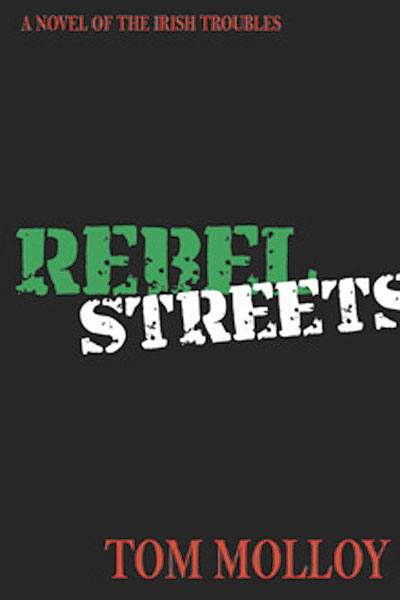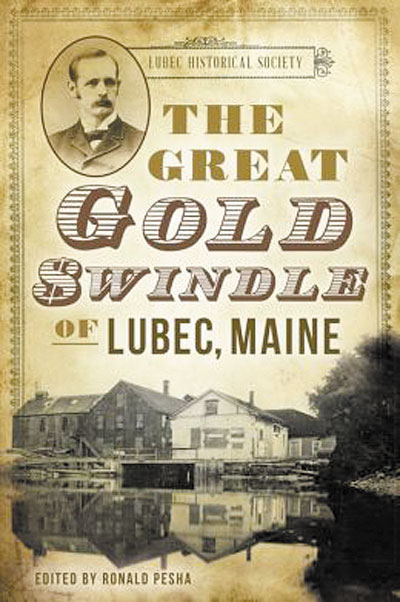REBEL STREETS: A NOVEL OF THE IRISH TROUBLES
By Tom Molloy
Nortia Press, 2012
232 pages, $14.95
ISBN 978-0-9848359-1-1
Portland author Tom Molloy has first-hand experience with the bloody conflict in Northern Ireland, having worked as a freelance journalist covering the Irish Republican Army in its vicious battles with the British army and the police. Those adventures give his latest novel, “Rebel Streets,” authenticity and convincing color.
This is a grim, chilling story of religious hatred, brutal extremism and merciless violence between Protestants and Catholics, with the IRA (Catholics) on one side and the Royal Ulster Constabulary (RUC) and British army (Protestants) on the other in the period known in Northern Ireland as the “Troubles.”
It is the late 1960s and IRA gunman Jimmy Fitzgerald is being tortured by the RUC in the infamous Castlereagh prison. He finally caves in to the pain and tells all he knows about the IRA, becoming a paid informant who works for an RUC detective named MacDonald.
MacDonald continually squeezes Jimmy for information on upcoming IRA operations, the names of leaders, locations of weapons caches and especially the name of the mysterious Yank — posing as a particularly deadly IRA sniper — who is killing policemen and soldiers with cold efficiency.
While MacDonald ruthlessly tracks down IRA fighters, Jimmy participates in ambushes, assassinations and bombings, as the RUC and British army cruelly mistreat Belfast’s Catholic population. Jimmy, meanwhile, is burdened by the increasing guilt of his betrayal and he searches desperately for a way out of his dilemma.
His final decision is shocking and oddly satisfying, but it brings no closure to the violence in Northern Ireland.
This is a well-written, incredibly graphic and violent story — especially the brutal interrogation of men and women and the gripping action of urban combat.
There are no heroes here, just seemingly endless sectarian violence.
THE GREAT GOLD SWINDLE OF LUBEC, MAINE
Edited by Ronald Pesha
The History Press, 2013
206 pages, $19.99
ISBN 978-1-62619-008-5
A notorious scoundrel once proclaimed: “It is morally wrong to allow suckers to keep their money.” And if that character had been in Lubec in 1898, he would have proven himself right.
It is not hard to believe that folks fall so easily for get-rich-quick schemes. It is much harder to believe that so many people were suckers in Lubec’s Great Gold Swindle.
This book was commissioned by the Lubec Historical Society. Using period newspaper accounts and personal anecdotes, as well as a series of revealing articles in the Lubec Herald in 1949-1951, editor Ronald Pesha tells a fascinating story of schemers and dreamers, and how a whole Maine town, much of New England and hundreds of investors were suckered into a preposterous scam to extract gold from sea water.
In early 1898, two shysters — a Baptist preacher and a department store worker — cooked up an ingenious scheme to convince investors that they had developed a secret, scientific process (ordained by God, claimed the preacher) for extracting gold from sea water. These two men were skilled con artists who used their gift of gab, slick promotional resources and a phony chemical process to set up the Electrolytic Marine Salts Company, attracting investors and eventually building a factory along the tidal shores of Lubec.
The story describes just how these two crooks pulled off the elaborate and highly successful con, swindling their investors and hood-winking the good citizens of Lubec, as well as how they were tripped up and exposed, and how they made their escape from the law with the loot — hundreds of thousands of dollars in cash.
This is a marvelous, entertaining bit of obscure Maine history, a chapter that lots of embarrassed, gullible investors would like to forget.
— Bill Bushnell lives and writes in Harpswell.
Send questions/comments to the editors.



